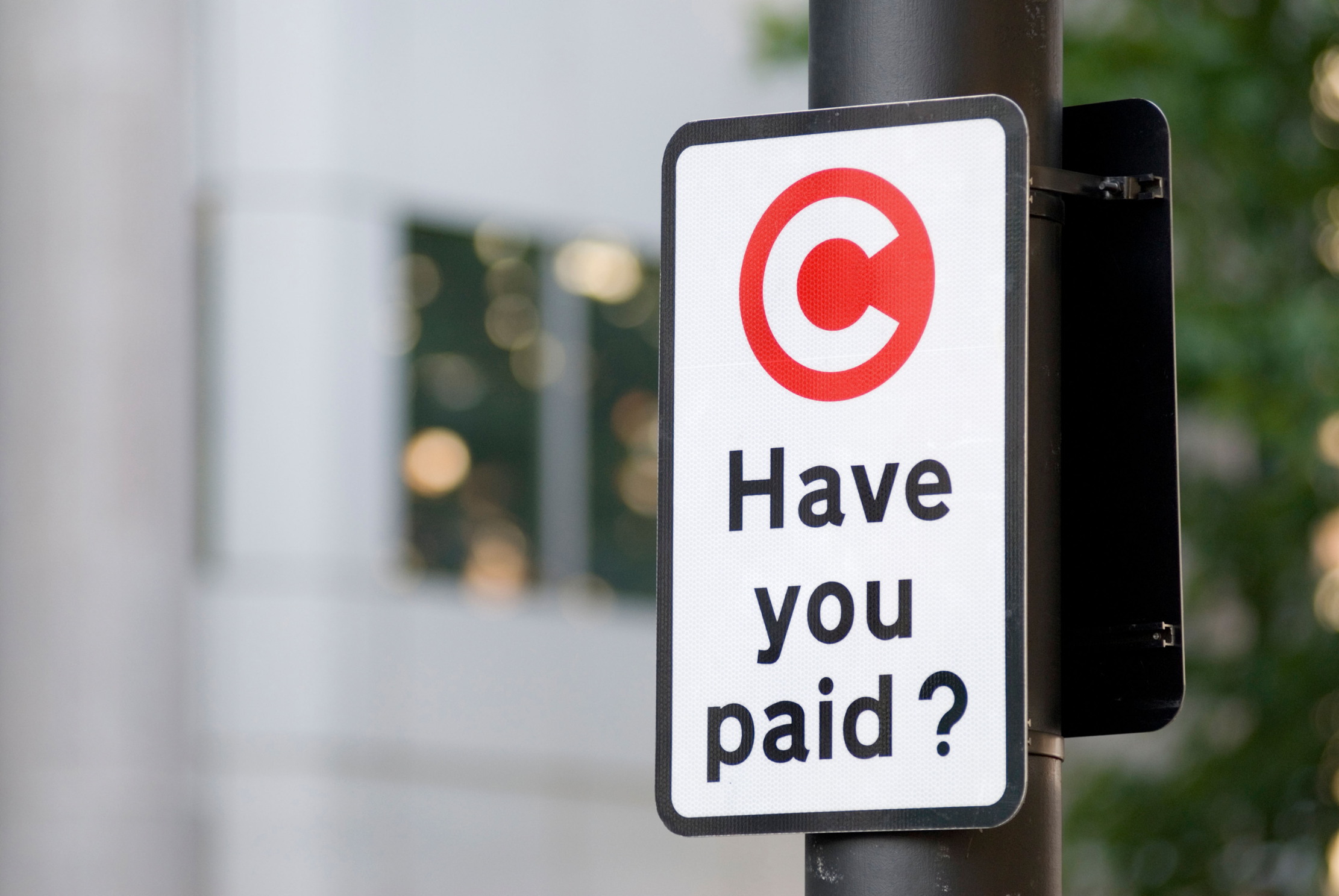Transport for London threatens the United States with court over unpaid congestion charge fines, but it seems likely our closest ally will never pay
The latest figures show that TfL is owed more than £143 million by foreign embassies and diplomats, and it is not happy about it.


On June 4, 2021, I was happily minding my own business, doing some work, when an email appeared. It said: ‘ Apologies to be the bearer of annoying news on a Friday, but unfortunately you picked up a congestion charge while out in the Caterham.’
Indeed, I had been out in ‘the Caterham’, a very generous press loan, which is why I of course completely forgot that you can’t just pootle around Central London without paying these days. I, like many sensible people, enjoy driving around the countryside, where there are no such things as congestion charges, or buses, or, in fact, public transport of any kind. The error cost me £160, which is an annoyingly large amount of money.
However, compared to the fines incurred by the Embassy of the United States of America, I am doing quite well. From 2003 to the December 31 2023, they have racked up an astonishing £14,645,025 worth of fines, none of which they have paid. Second on the list is the Embassy of Japan (£10,073,988), third is the Office of the High Commissioner for India (£8,551,835) and fourth is the Embassy of the People’s Republic of China (£7,936,890). Naturally, considering just those four embassies currently owe Transport for London more than £40 million, TfL is pretty cross about all this.
‘We and the UK Government are clear that the Congestion Charge is a charge for a service and not a tax’, they have written. ‘This means that diplomats are not exempt from paying it. The majority of embassies in London do pay the charge, but there remains a stubborn minority who refuse to do so, despite our representations through diplomatic channels’.
TfL went on to add that they will be pursuing these fines at the International Court of Justice. Which is a hell of a sentence. For the full list of congestion charge shirkers, click here
As implied above, the issue centres around the idea of a congestion charge being a tax or a charge for a service. TfL is fairly clear that they believe the congestion charge is not a tax, which would mean that embassies and their diplomats are exempt. However, as tax expert and founder of Tax Policy Associates Dan Neidle points out, ‘there’s a serious argument that it is a tax’.
Writing on X, he notes that ‘the UK position was significantly weakened when ULEZ came in, and TfL conceded that ULEZ was a tax, not a charge for service, because only the most polluting vehicles were taxed’. Electric cars are exempt from the congestion charge, ‘despite the fact that they (obviously) use roads just as much as other cars’, he adds. ‘This is a serious hole in the UK’s argument’.
Exquisite houses, the beauty of Nature, and how to get the most from your life, straight to your inbox.
Either way, none of it really matters, according to Dan, as ‘nothing anyone does or says will make diplomats pay the congestion charge if they don’t want to, and there’s no way to force them’. Even if TfL defeated the United States of America at the International Court of Justice (again, what a sentence), there’s no mechanism to enforce the fines.
So there you have it. TfL, which is struggling with immense debt issues, claims it is owed about £143 million, but has no way of getting that money. There is no doubt plenty of discourse to be had here, but that is not our business. Should nation states that can literally print their own money pay their bills? Probably.
Many thanks to James O’Malley (@psythor) and Dan Neidle (@DanNeidle)

'Nothing wrong with a bit of furore': An insider's guide to judging the Chelsea Flower Show, by RHS senior judge James Alexander-Sinclair
James Alexander-Sinclair comes to the Country Life podcast to talk about his career in gardening, and his two decades spent

Alan Titchmarsh on Chelsea 2024: 'We need controversy to make us think... Just don’t expect me to regard slugs and snails as my friend'
Alan Titchmarsh looks ahead to the 'matchless spectacle' of the 2024 Chelsea Flower Show, the 'Paris catwalk of the British

Credit: Knight Frank
The newest 'Old Rectory' in the world is up for sale, set in ancient woodland, with a cathedral-like pool and its own golf course
In the Weald where Surrey, Sussex and Kent come together, Penny Churchill takes a look at a fascinating house.

James Fisher is the Digital Commissioning Editor of Country Life. He writes about motoring, travel and things that upset him. He lives in London. He wants to publish good stories, so you should email him.